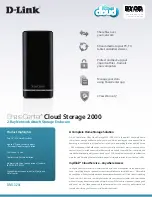
4
SAFETY INSTRUCTIONS
Warning! When using electric tools, basic safety
precautions should always be followed to reduce
the risk of fire, electric shock and personal
injury, in-cluding the following.
Read all these instructions before attempting to
operate this product and safe these instructions.
1.
Keep work area clean
– Cluttered areas and benches invite injuries.
2.
Consider work area environment
– Don't expose power tools to rain. Don't use
power tools in damp or wet locations. Keep work
area well lit. Don't use power tools in presence of
flammable liquids or gases.
3.
Guard against electric shock
– Prevent body contact with grounded surfaces
(e.g. pipes, radiators, ranges refrigeratiors).
4.
Keep children away
– Do not let visitors contact tool or extension
cord. All visitors should be kept away from work
area.
5.
Store idle tools
– When not is use, tools should be stored in dry,
high, or locked-up place, out of the reach of child-
ren.
6.
Don't force tool
– It will do the job better and safer at the rate for
which it was intended.
7.
Use right tool
– Don't force small tools or attachments to do the
job of heavy duty tool. Don't use tools for purpo-
ses not intended: for example, don't use circular
saw for cutt- ing tree limbs or logs.
8.
Dress properly
– Do not wear loose clothing or jewelry. They can
be caught in moving parts. Rubber gloves and
nonskid footwear are recommended when wor-
king outdoors. Wear protective nair covering to
contain long hair.
9.
Use safety glasses
– Also use face or dust mask if cutting operation
is dusty.
10.
Don't abuse cord
– Never carry tool by cord or yank it to disconnect
it from receptacle. Keep cord from heat, oil and
sharp edges.
11.
Secure work
– Use clamps or a vise to hold work. It's safer
than using your hand and it frees both hands to
operate tool.
12.
Don't overreach
– Keep proper footing and balance at all times.
13.
Maintain tools with care
– Keep tools sharp and clean for better and safer
performance. Follow instructions for lubricating
and changing accessories. Inspect tool cords
periodically and, if damaged, have repaired by
authorized service facility. Inspect extension
cords periodically and replace if damaged. Keep
handles dry, clean and free from oil and grease.
14.
Disconnect tools
– When not in use, before servicing, and
when changing accessories such as blades, bits
and cutters.
15.
Remove adjusting keys and wrenches
– Form the habit of checking to see that keys and
adjusting wrenches are removed from tool before
turning it on.
16.
Avoid unintentional starting
– Don't carry plugged-in tool with finger on
switch. Be sure switch is off when plugging in.
17.
Outdoor use extension cords
– When tool is used outdoors, use only extension
cords intended for use outdoors and so marked.
18.
Stay alert
– Watch what you are doing. Use common
sense. Do not operate tool when you are tired.
19.
Check damaged parts
– Before further use of the tool, a guard or other
part that is damaged should be carefully checked
to determine that it will operate properly and per-
form its intended function. Check for alignment of
moving parts, binding of moving parts, breakage
of parts, mounting, and any other conditions that
may affect its operation. A guard or other part
that is damaged should be properly repaired or
replaced by an authorized service center unless
otherwise indicated elsewhere in this instructions
manual. Have defective switches replaced by an
authorized service center. Do not use tool if
switch does not turn it on and off.
20.
Warning
– The use of any other accessory or attachment
other than recommended it this operating instruc-
tion or the Einhell catalog may present a risk of
personal injury.
21.
Have your tool repared by an expert
– This electric appliance is in accordance with the
relevant safety rules repairing of electric applian-
ces may be carried out only by experts otherwise
it may cause considerable danger for the user.
22.
Connect the dust extraction device
Wherever there are facilities for fitting a dust
extraction system, make sure it is connected and
used.
23.
Noise level
The noise level of this power tool is measured
according to EN 50144-1. Noise level at work
area can eceed 85 dB (A). In that case operators
should protect themselves against damage to
hearing.
GB
S-Hinweise Schleifgeräte 07.04.2005 8:38 Uhr Seite 4














































